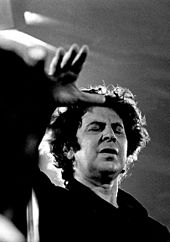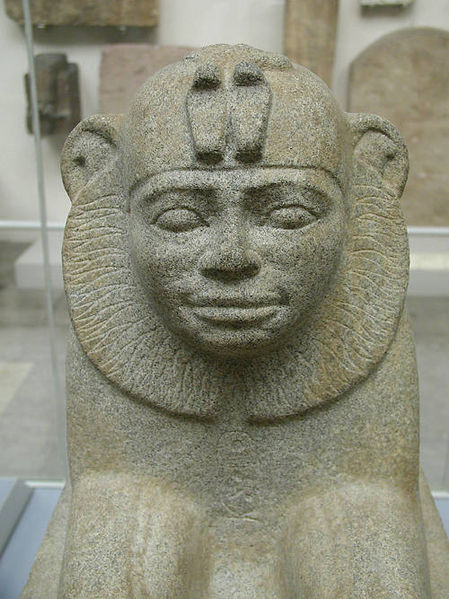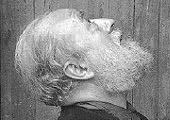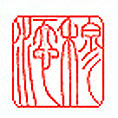

About forty years ago, the Blue Nile Cinema was one of our favourites. It was an open air cinema. A good number of clients sat on seats at ground level. If you were with a group of friends you might hire a ‘loggia’, which was higher up and a bit further back. A loggia had several seats and was surrounded by a low wall. The cinema played music as you were waiting to see the film or during any interval, always the Supremes 1967 hit, ‘The Happening’, which was a signature-tune of the cinema. You could order coffee or lemonade or beer to be brought to your box. (If you click here to see and hear a later performance of this song, use your browser’s back button to come back. At that time, by the way, I had two feminine idols: Diana Ross, and Shirley Maclaine.)


It was in the Blue Nile Cinema that I first saw the film ‘Z’ by Costa Gavras, made during the time of the régime of the colonels in Greece. This was an Oscar-winning political thriller made in 1969 and based on a novel by Vassili Vassilikos. It starred Yves Montand, with Jean-Louis Trintignant as the intrepid examining magistrate. It was a polemical film against the régime of the colonels, and a good thriller.
I went to the Greek island of Kos during that period, having invited my parents to join me. We had a good time. My mother rather surprised me by agreeing to sit on the back of a motor scooter which I hired to go around. We visited a Muslim graveyard on the island, with inscriptions in Arabic. One evening in our hotel we gathered that a large central table was occupied by some of those colonels.
The next day, which was the Orthodox Easter, we saw banners in the streets, saying in Greek ‘Christ is risen, Greece is risen’ with the Phoenix symbol employed by the régime. This was sinister.
The colonels had banned the music of Mikis Theodorakis, an ardent communist, and a fine musician.  He had fought, as a teenager, to resist the Italian forces in the Second World War, at the time when the only countries in the world which were resisting the Axis powers were Britain and Greece. He was put in a concentration camp by the colonels, but allowed to go into exile under international pressure by people such as Dmitri Shostakovich, Leonard Bernstein, Arthur Miller, and Harry Belafonte. He wrote the score for the film ‘Zorba the Greek’. For an extended trailer of the film showing Anthony Quinn as Zorba meeting the character played by Alan Bates, click here (very watchable).
He had fought, as a teenager, to resist the Italian forces in the Second World War, at the time when the only countries in the world which were resisting the Axis powers were Britain and Greece. He was put in a concentration camp by the colonels, but allowed to go into exile under international pressure by people such as Dmitri Shostakovich, Leonard Bernstein, Arthur Miller, and Harry Belafonte. He wrote the score for the film ‘Zorba the Greek’. For an extended trailer of the film showing Anthony Quinn as Zorba meeting the character played by Alan Bates, click here (very watchable).
Theodorakis came to Khartoum for the first showing of ‘Z’, in the Blue Nile Cinema. He was due later to give a talk in what had been called the ‘other ranks club’ in colonial days.
Strictly, the Sudan was not a British colony in the usual sense, but an ‘Anglo-Egyptian condominium’.  Curious to reflect that three thousand years ago the whole of Egypt and the Northern part of the Sudan were ruled by Black African pharaohs from the Kingdom of Kush. Unlike many conquerors, the Kushitic rulers, rather than imposing their own ways on the vanquished Egyptians, adopted and adapted Egyptian styles. I visited the ancient pyramids in the sands of Northern Sudan in 1970.
Curious to reflect that three thousand years ago the whole of Egypt and the Northern part of the Sudan were ruled by Black African pharaohs from the Kingdom of Kush. Unlike many conquerors, the Kushitic rulers, rather than imposing their own ways on the vanquished Egyptians, adopted and adapted Egyptian styles. I visited the ancient pyramids in the sands of Northern Sudan in 1970.
We went along for the talk of Theodorakis, and there was quite a big audience. There was a long delay. I receive a tap on my shoulder. Someone says to me ‘Dr Moore, the translator has not turned up. Could you do it?’ I say ‘Well, I couldn’t do simultaneous interpretation from Greek into Arabic.’ He replies that Theodorakis will speak in French, and that it will be fine if I just translate from French to English. I agree.
Theodorakis is a tall and imposing man. I stand just behind his shoulder and do my job. I find his talk somewhat boring, consisting mainly of routine attacks upon multinational corporations. While I sympathize with this point of view, I have heard it all before. But I translate, and he is an enthusiastic speaker with a case to argue, and plenty of evidence offered to back it up, though I do not know how sound this evidence was.
In question-time, someone asks Theodorakis a question about the origins of music. He replies, in my translation ‘Before human beings spoke, they had sensations’ [Avant que l’homme ne parlait, il sentait’]. (This was natural enough for me with my philosophical background of studying and criticising centuries-old theories according to which all important human capacities were thought to be just constructed from simple data received through the senses.)
It is a few moments later, and too late, when I realise my mistake. The ‘sh’ phoneme is not a part of modern Greek (or Ancient Greek), and tends to be pronounced ‘s’ by native Greek speakers today. What Theodorakis had actually said was ‘Before human beings spoke, they sang’ [Avant que l’homme ne parlait, il chantait]. I still regret this bad mistake, though in a way I also relish the memory of having made it.
I have just noticed (2010) in Oliver Sacks’s book Musicophilia that Darwin held that song preceded speech in humans. Merlin Macdonald, it seems, went further, arguing that mimetic use of rhythm in human communities long preceded language. It is held that only in the human brain is there a functional connection between the auditory and the dorsal premotor cortex. If Mikis Theodorakis had, by luck, by study, or by instinct, hit the nail on the head in his French diction, I had failed to convey this to his audience at the time.
After that, I avoided requests to do simultaneous translation (except in entirely informal contexts). I think I did it only once more, thirty years later. This was in Hong Kong, when Michel Butor gave a talk. He is a significant literary figure in France, an essayist and novelist. With Alain Robbe-Grillet he was one of those who launched the ‘nouveau roman’ of the fifties or sixties. He wore a salopette, almost like a trademark, and was a very engaging person, as was his wife.

But doing the simultaneous translation of his talk about poetic language was very hard. He started off phrase by phrase, so that I could readily provide an adequate English rendering. But as he became more enthusiastic about what he was saying, there were quite long speeches to be rendered, and I found myself making frantic notes around the edges of the only small piece of paper I happened to have with me, to be able to give a version of what he had been saying for some minutes about different matters, such as the differences of scientific terminology in French, German and English and their bearing upon poetic diction. (‘Wasserstoff’, for hydrogen, was among numerous potential reefs.)
It was OK. Some of those attending assumed that I must have received a text in advance to prepare a translation. But there was no such text at all. I enjoyed the experience, and did my best, but felt tired afterwards. I do not recall or did not notice any serious blunder such as I had made with Theodorakis. I thought that from time to time at least I had perhaps given a sufficiently stylish and faithful rendering of the great man’s thoughts, though it was far from being word-for-word, and very far from being impeccable. We had a good and congenial francophone meal after that. The food was Chinese. Then I went to bed.
There were a lot of cinemas in the conurbation of Khartoum, all, at that time at least, open air venues. A rarity came to my attention at one point: Hitchcock’s film ‘Rope’ was being shown in Omdurman. This film was made in 1948. It was largely shot in real time, with continuous unedited takes of up to 10 minutes. But Hitchcock later withdrew it from circulation. It is a thriller based on a play about a ‘perfect murder’. I knew of it, but had never been able to see it, despite being an avid film-goer. And here it was, showing in Omdurman.

I crossed the the bridge over the White Nile with a sense of pleasurable anticipation. The print looked as if it had been circulating in the Middle East for years, being rather washed out and scratched, perhaps because of sand in the atmosphere. Towards the end, I found the film difficult to follow, but I cottoned on to the reason for this. The projectionist that evening showed the reels in the order 1 : 3 : 2!
from this page you can print the
whole section, without illustrations,
hypertext references or
navigation tools
go on
— go back to the guide
